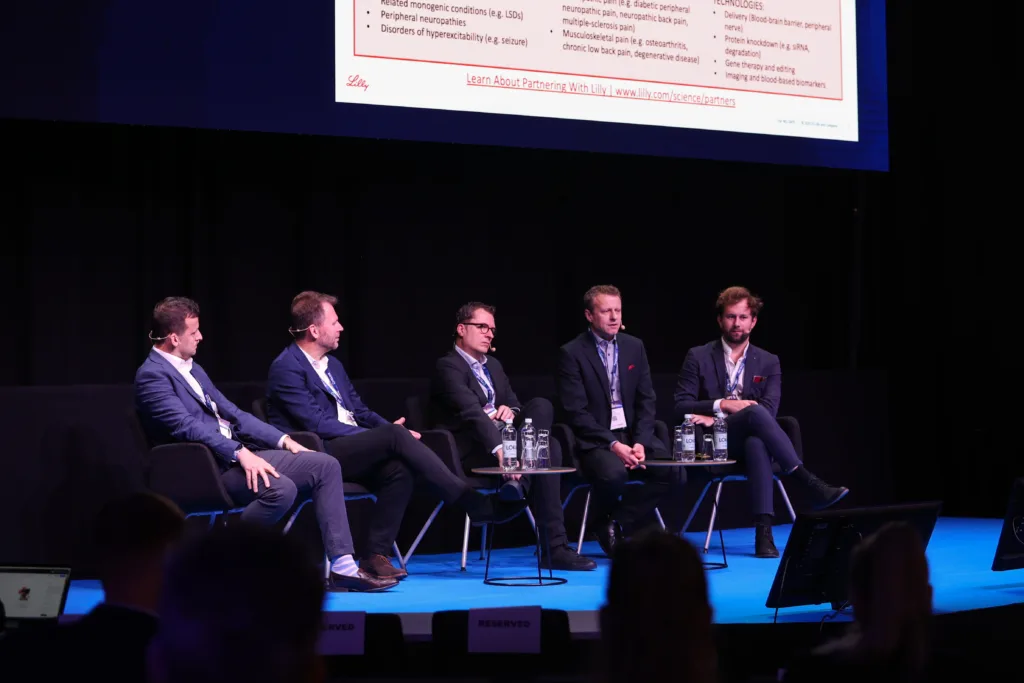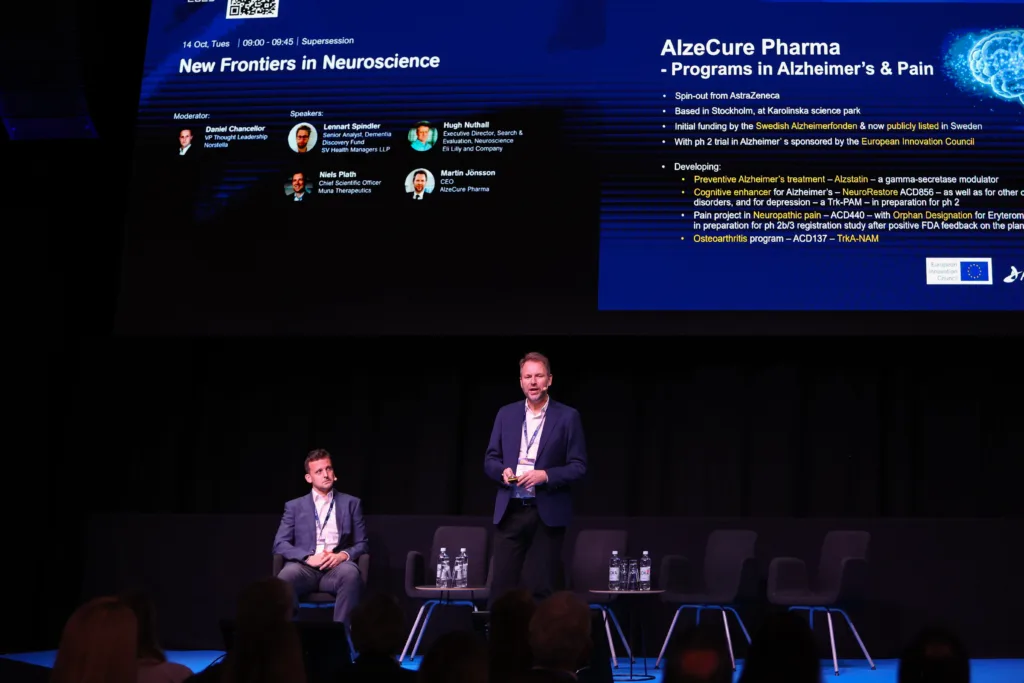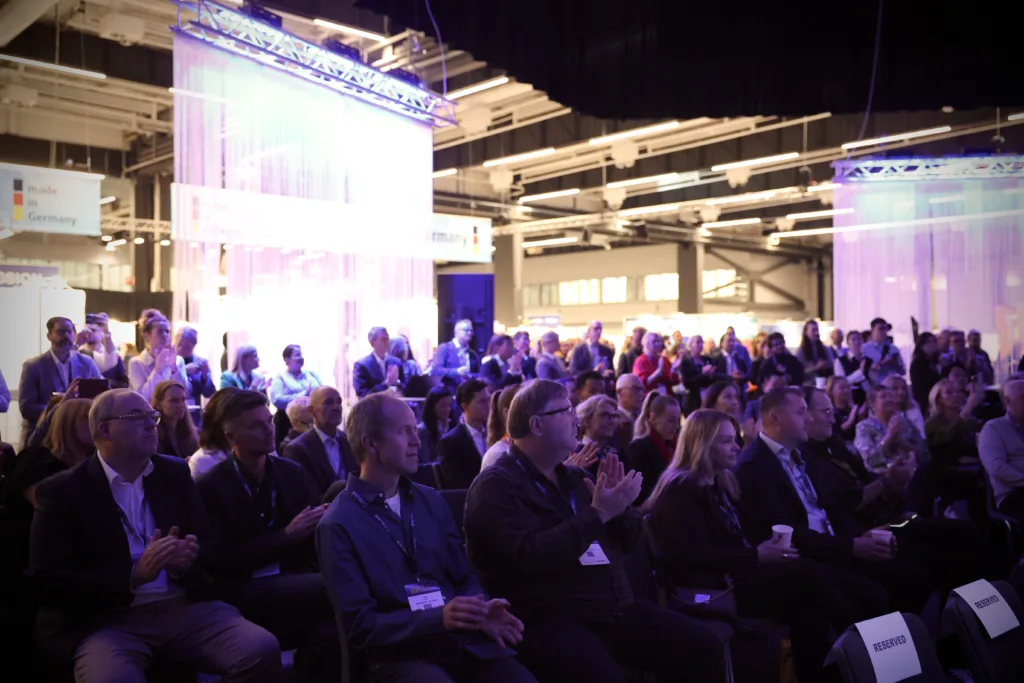New frontiers in neuroscience – a topic under the spotlight at NLSDays

Central Nervous System (CNS) disorders remain among the most complex and urgent challenges in global healthcare. The supersession on the topic at NLSDays 2025 drew an interested crowd, eager to learn about the latest advancements in CNS research and development.
The panel discussed how the convergence of technology is accelerating the path from discovery to treatment, offering a deep dive into the challenges and opportunities in the CNS landscape and providing a forward-looking perspective on the innovative strategies paving the way for a new era of brain health.
Moderated by Daniel Chancellor, VP Thought Leadership at Norstella, the panel featured Niels Plath, Chief Scientific Officer at Muna Therapeutics, Lennart Spindler, Senior Analyst, Dementia Discovery Fund at SV Health Managers LLP, Martin Jönsson, CEO of AlzeCure Pharma, and Hugh Nuthall, Executive Director, Search & Evaluation, Neuroscience at Eli Lilly and Company.
The experts began by discussing how CNS, once a promising area that companies invested in heavily, has proved challenging. Scientific hurdles, clinical failures, and patent expiries have shifted investment away from CNS toward areas like oncology, immunology, and rare diseases. The Nordic countries, however, have remained a committed hotspot for CNS research.

“Perhaps we’re now at the beginning of a new upswing”, said Daniel Chancellor, pointing to recent developments, such as positive gene therapy results in Huntington’s disease, progress in neurodegenerative conditions, a growing interest in psychedelics, and new pain mechanisms as encouraging signs.
Martin Jönsson, CEO of AlzeCure Pharma, a Stockholm-based spin-out from AstraZeneca focused on Alzheimer’s and pain, shared Chancellor’s view, saying: “When I joined six years ago, investors viewed Alzheimer’s as a nightmare. But I’ve seen a real shift, breakthroughs, renewed investor interest, and pharma companies returning. It’s a great time to be in this space.”
AlzeCure’s birth mirrors the roller coaster ride the CNS area has been on. The company was founded by the Swedish Alzheimer’s Foundation and Professor Bengt Winblad at the Karolinska Institute when AstraZeneca exited the CNS field.
Lennart Spindler, an investor with the Dementia Discovery Fund (DDF), managed by SV Health Investors, echoed the narrative. “Back in the early 2010s, CNS was considered a ‘graveyard of therapeutics.’ Venture capital wouldn’t touch it”, he said.
That changed with the creation of DDF, a public-private partnership formed by the UK government and the British Business Bank. Since 2015, the DDF has raised two funds totaling over $500 million, Spindler said, adding: “We now have 21 active portfolio companies, with 10, soon 11 drugs in clinical trials. What’s exciting is that CNS innovation is now attracting traditional venture investors as well as strategic pharma partners.”
He too was thankful for the Nordics’ uninterrupted commitment to CNS: “I must say, it’s especially rewarding to be in the Nordics. When many other regions abandoned CNS R&D, the Nordics kept the flame alive. The tenacity and strong ecosystem here have been crucial for global progress in this field”, he said.
Answering the moderator’s question if we are truly at the beginning of a renaissance in CNS, Martin Jönsson replied: “I think we’re at the start of one. Improved diagnostics and positive treatment outcomes have reduced perceived risk, encouraging more investment. It’s an early but promising stage.”
Niels Plath agreed, adding that he considers it less a sudden rebirth and more the result of persistent research. “We’ve learned from past failures, applied new tools like biomarkers and adaptive trial designs, and now we’re seeing the rewards”, he said.
Hugh Nuthall noted that persistence has indeed paid off. “Lilly never left CNS, and decades of continuous work in Alzheimer’s and pain are finally showing results”, he said.
Lennart Spindler chimed in that the data supports the idea of a renaissance. “CNS venture funding has grown by about 85% year-on-year. But to sustain it, we need to keep investing in early-stage science, not just late-stage deals”, he said.

Why the Nordics?
The panel discussed the role of the Nordics in CNS and the fact that the region remained active in the field.
Lennart Spindler praised the Nordics’ academic ecosystem, strong biobanks, and integrated medical records. “What’s missing”, he said, “is more deep CNS-focused venture funding. A dedicated CNS fund in the Nordics could be transformative.”
Hugh Nuthall noted that his company has had many collaborations with Nordic academia, but only a few formal deals so far. “There’s huge potential, we just need to turn conversations into partnerships”, he explained.
Niels Plath focused on the foundational strengths the region is known for: “The Nordics benefit from strong foundations that reinvest in research, close collaboration between academia and industry, and an attractive quality of life that helps retain talent.”
Martin Jönsson, on the other hand, raised a chronic weakness: “The challenge is funding. We often have to go to the U.S. to find lead investors with deep CNS expertise. To truly grow the Nordic CNS sector, we need to build that investor base here.”
Looking ahead, the panel discussed what the future may hold for CNS research. “I believe we’ll see more precise diagnostics and better clinical endpoints for symptoms that matter most to patients. Closer collaboration with regulators on biomarker-driven trials will be key”, said Niels Plath.